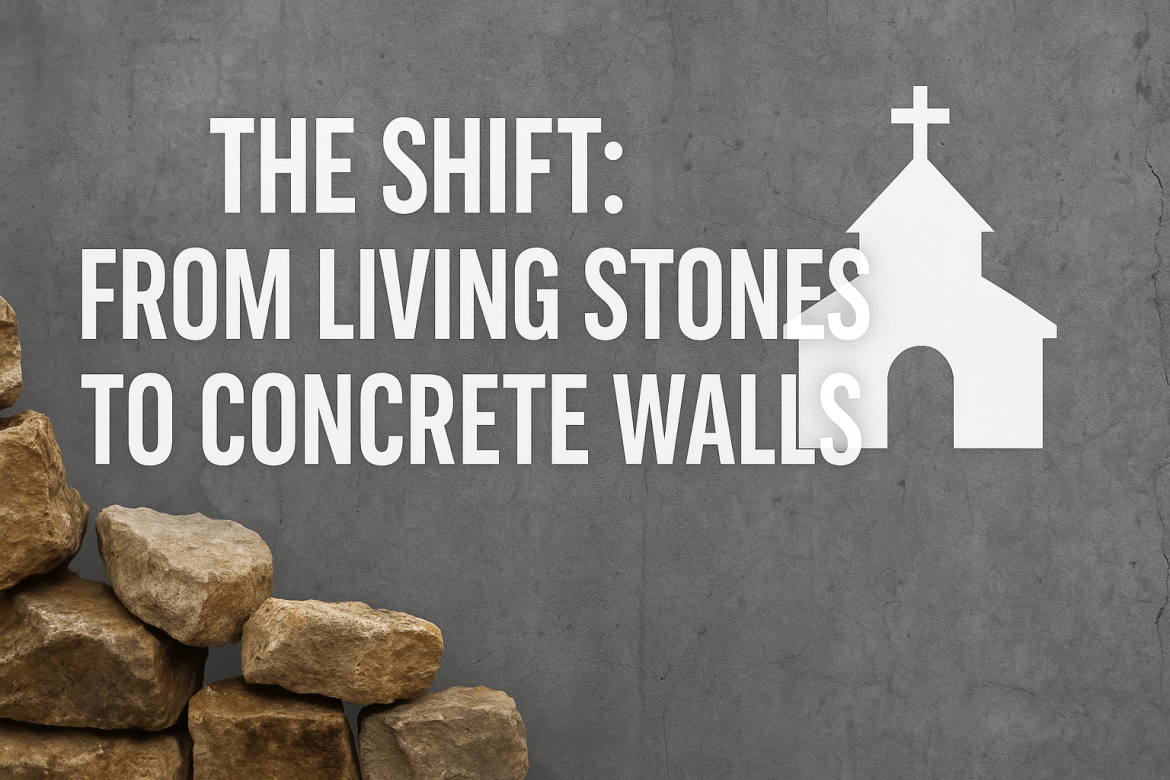The Early Church: A Scattered, Sent People
For the first 300 years after Christ, the Church was a mobile, Spirit-led movement of disciples. Christians lived as ambassadors of Jesus, sent into a hostile world to proclaim the gospel, often risking their lives. Jesus’ commission was clear: “Go and make disciples of all nations” (Matthew 28:19–20). He warned, “I am sending you out like lambs among wolves” (Luke 10:3). The Church wasn’t a building—it was a people, the true temple of God (1 Corinthians 6:19), on mission.
Persecution scattered early believers, yet they spread the Word wherever they went (Acts 8:4). They gathered in homes to pray, break bread, and encourage one another (Acts 2:46), then scattered again. Their rhythm was simple: go out, gather to strengthen, go again.
The Turning Point: Constantine’s Political Move
In 313 AD, Emperor Constantine’s Edict of Milan legalized Christianity, aligning it with the Roman state. The Church shifted from a persecuted, scattered body to a centralized institution. Buildings modeled after Roman basilicas replaced home gatherings, redefining the Church’s identity. People began saying, “I go to church,” instead of “I am the Church.” The mission of going out became an invitation to “come in.”
This wasn’t just architectural—it was spiritual. The Church traded its “go ye” calling for a “come ye” model, sacrificing Jesus’ command to scatter for the harvest (Matthew 9:37–38). Buildings can serve the mission, but too often, they become the mission, tethering our identity to structures rather than Christ.
Preaching the Kingdom of God, Not Our Own
Jesus’ mission was to proclaim the Kingdom of God (Luke 4:43, Mark 1:14–15), not to build human kingdoms—whether personal ambitions, denominational empires, or physical structures. Early Christians didn’t risk their lives for buildings; they preached Christ’s lordship in hostile territories, often facing persecution (Acts 8:1–4). This work was dangerous, but Jesus warned of the cost (Luke 10:3). Modern churches must resist the lure of safe, inward-focused programs and embrace the risky call to scatter, declaring God’s Kingdom with Spirit-empowered boldness. Our calling is to advance God’s reign, not our own agendas or building programs.
Related:
- The Shift Away from Institutions: A Call to Return to Jesus
- Heart of Nehemiah, The Secret to Rebuilding the Walls of the Church in America
- The Heart of Nehemiah
- Rethinking Church: We Made It Up, George Barna
- Back to Basics for the Church
- Rethinking Church- Not Us and Them, Just US
- Understanding the Power of Learning: How We Learn a Biblical Perspective on Retention Rates
What Is Normal Is Now Revolutionary
In his book Revolution (Revolution), George Barna observes that what is biblically normal—living as passionate, active disciples who prioritize God’s Kingdom—is now seen as revolutionary. The early Church’s rhythm of scattering and gathering, preaching the gospel despite danger, was standard. Yet today, believers who pursue this Christ-centered, mission-driven life are often viewed as radical. Barna’s research suggests that millions of committed Christians are leaving institutional churches to seek a deeper, more authentic faith, reflecting a return to biblical roots. This “revolutionary” label highlights how far the Church has drifted from its original mission, mistaking institutional norms for biblical ones.
Rediscovering the Mission: The Church as Living Stones
Scripture calls us “living stones” built into a spiritual house (1 Peter 2:5). God’s dwelling place is His people, not buildings. Discipleship means going out—even into danger—trusting the Spirit to lead and empower. Gatherings matter, but they must equip believers for mission, not replace it. Churches should be outposts, not fortresses, deploying disciples to proclaim the Kingdom.
How a Local Church Can Respond: Embracing the Revolution
George Barna’s Revolution offers a glimpse of how churches can respond to this shift. In a conversation with a pastor named Gary, Barna describes the rise of “Revolutionaries”—believers growing in faith outside traditional church structures. Gary’s response is striking:
Over lunch, Gary, a senior pastor, heard about the Revolution and its implications. “That’s great,” he exclaimed. “Whatever it takes to get people to be God-focused. That’s exciting stuff!” Surprised, I admitted I feared he’d see me as a heretic for supporting those growing outside his church. Laughing, he replied, “Don’t think it didn’t cross my mind.”
Gary paused, then continued, “I’ve watched families leave our church for other forms of church life. These Revolutionaries won’t return to our building, and others like them won’t come. But it shouldn’t matter. As a pastor, I want passionate, active believers. It’d be hypocritical to get upset that people are becoming genuine disciples outside our church. God’s Kingdom isn’t about who gets credit.”
I pressed him: “If your congregation grows elsewhere, attendance and offerings will drop. Your job could be at risk. Your church, taught to measure impact by numbers, might lose trust in you.” Gary nodded. “Our fraternity is numbers-conscious. My elders would push back on a strategy that didn’t boost numbers. But God’s Kingdom isn’t about numbers—it’s about disciples walking the walk.” (Revolution, adapted)
Gary’s openness reflects a Kingdom-minded posture. Churches must celebrate disciples who scatter to proclaim God’s reign, even if it means smaller budgets or buildings. The goal is not attendance but deployment.
Related:
- House Churches: God’s End-Time Strategy for Revival, Kim Clement
- Acts 2:42 Vision: The Church of Acts and the Combine Harvest! “I saw Jesus face to face.” Chris Reed
- Church is an Organism, not an Organization
- Re-Thinking Church- Institutionalized, Confined, and Contented?
- Re –Thinking Church Revisited
- Re-Thinking Church – Stats say it isn’t Working
- Re-thinking Church
- Re-Thinking Church: God is a God of order but his name is not Robert
A Call to Modern Churches: Reclaim the Ambassador Identity
Modern churches must re-center on Jesus’ command to go. Gatherings should inspire and equip believers to scatter. Success isn’t a packed building but disciples going, making, baptizing, and teaching (Matthew 28:19–20). Early Christians didn’t need structures to validate their faith—they relied on the Spirit, Scriptures, and each other. We must reclaim this rhythm: go out, gather to strengthen, go again.
The work is dangerous, as Jesus warned. Preaching the Kingdom invites opposition. But the call is clear: we are ambassadors of God’s Kingdom (2 Corinthians 5:20), not caretakers of
Choosing the Eternal Battle: Building God’s Kingdom Over Human Structures
Be sure to pick your battles and the hill you choose to die on. We are called to die to ourselves, pick up our cross, and follow Jesus—ensure that your “cross” is not merely a building (Matthew 16:24). Jesus chose His battle: the souls of mankind, the will of His Father (John 6:38), and seeking and saving the lost (Luke 19:10). He chose His hill to die on, Golgotha, because He wanted a building, not built with human hands, that He could dwell in (Hebrews 9:11). He made them disciples who believe, baptize, and obey His teachings, sending them out as His ambassadors (Matthew 28:19–20). Then He said, speaking to His Father, “As you sent me into the world, I have sent them” (John 17:18). In the end, when all is said and done and you are standing before our Beloved Savior and King, would you want to give your life and substance for a human “building” or for God’s kingdom, not built with human hands (Hebrews 9:11)? A revolutionary who never second-guesses Jesus’ commands seeks to obey Him, no matter the resistance, for it is Him they aim to please, not man (John 8:29) (Matthew 10:34-41).




